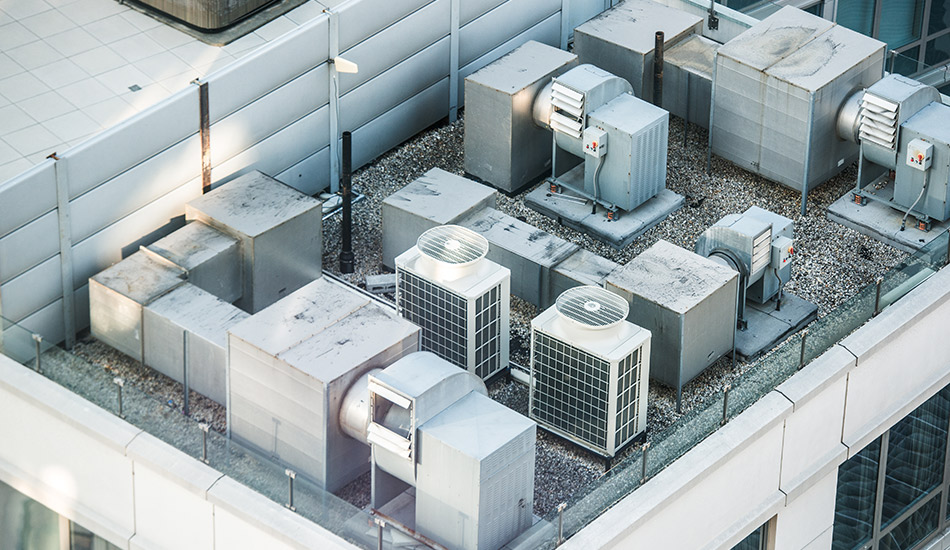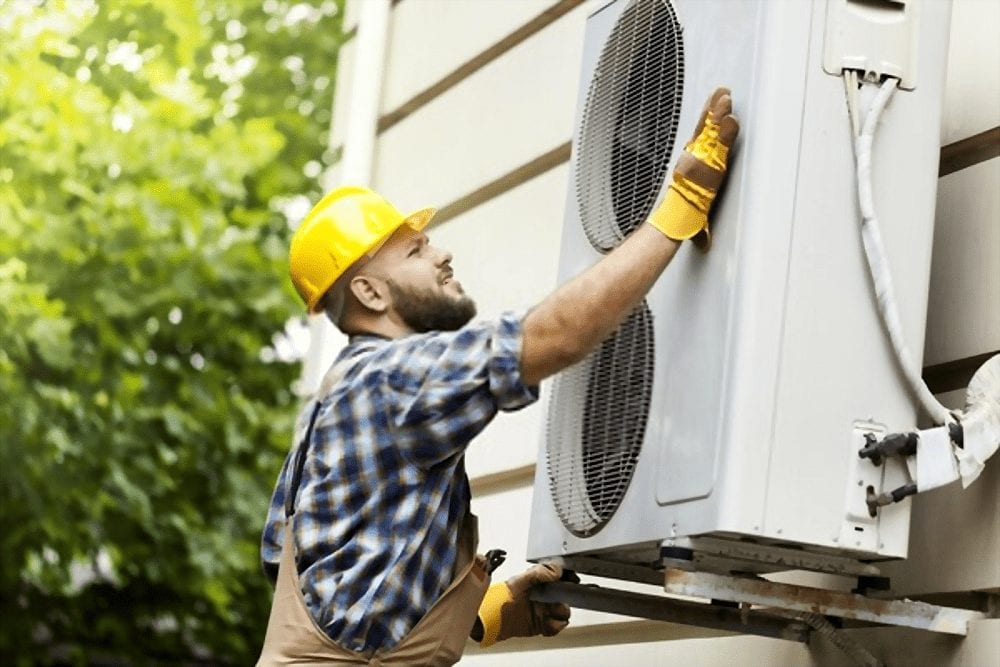Choosing the Right Model for heat pump installation ooltewah tn
Choosing the Right Model for heat pump installation ooltewah tn
Blog Article
Choosing In Between a Warm Pump and Heating System: Key Considerations for Your HVAC Needs
When examining heating options for cooling and heating needs, the choice in between a warm pump and a heater can be intricate. Each system supplies unique benefits tailored to particular climates and energy effectiveness goals. Understanding these differences is important for making an enlightened option. Secret aspects such as installation expenses and environmental impact better make complex the selection procedure. Which alternative absolutely lines up with one's convenience and sustainability preferences? The following sections will check out these factors to consider in information.
Understanding Warm Pumps: Exactly How They Function and Their Advantages
While numerous house owners take into consideration different heating choices, recognizing exactly how warm pumps feature and their benefits can considerably affect their decision. Heat pumps operate by transferring warm instead of producing it. In the winter months, they extract warmth from the outside air or ground and move it inside, while in the summer season, they reverse this process, cooling down the home by expelling warmth outside. This double functionality makes them functional for year-round climate control.One of the primary advantages of warmth pumps is their power effectiveness. They use substantially less electrical power compared to conventional heater, potentially leading to reduced energy expenses (heat pump installation ooltewah tn). Additionally, heatpump have a smaller carbon footprint, making them an ecologically friendly choice. They also call for much less maintenance than traditional systems, adding to lasting expense savings. Generally, understanding the auto mechanics and benefits of heatpump can aid house owners make notified choices concerning their heating and cooling down needs
Exploring Furnaces: Types, Operation, and Advantages
Heating systems are available in various kinds, including gas, electrical, and oil versions, each with unique functional devices. Recognizing these distinctions is essential, as they influence efficiency and heating performance. Furthermore, heaters offer countless benefits, such as consistent warm result and dependability in colder environments.
Sorts of Heaters
Heating unit can vary substantially in design and operation, with heaters being a popular option among house owners. There are a number of sorts of furnaces, each making use of different fuel resources and modern technologies. Gas furnaces prevail, leveraging gas to generate warmth effectively. Electric heating systems, on the other hand, use electrical resistance to create warmth, typically favored for their simple installment. Oil heating systems, while much less usual, are efficient in areas with minimal gas gain access to (heat pump service). Additionally, condensing heating systems take full advantage of power effectiveness by capturing and reusing exhaust gases. Each type operates with a system of warm exchangers and ductwork to disperse warm air throughout a home. Understanding the differences between these furnace kinds is vital for educated cooling and heating choices
Benefits of Heaters
For property owners seeking reputable heat during cool months, the advantages of furnaces are considerable. Furnaces supply constant heating, making sure also temperatures throughout the home. They are specifically efficient in severe chilly, commonly exceeding warmth pumps in frigid problems. Different kinds, consisting of gas, electrical, and oil heating systems, use adaptability to fulfill varied demands and preferences.Furnaces likewise have a tendency to have lower preliminary installation costs compared to heatpump, making them a more available choice for many. Their robust layout adds to a much longer lifespan, with several devices lasting over 15 years with correct upkeep. Furthermore, modern-day furnaces are often equipped with innovative innovation for improved efficiency, which can bring about lowered energy costs. On the whole, furnaces remain a reputable choice for effective home heating.

Energy Efficiency: Comparing Warmth Pumps and Furnaces
When comparing energy performance between warmth pumps and heating systems, the Seasonal Power Efficiency Proportion (SEER) plays a necessary role in determining efficiency. In addition, an operational price analysis exposes the lasting economic effects of each system. Recognizing these factors can direct property owners in making educated choices concerning their heating options.
Seasonal Power Effectiveness Proportion
Energy efficiency plays an important duty in the decision-making process in between heatpump and furnaces, especially when taking into consideration the Seasonal Energy Performance Proportion (SEER) This metric procedures the cooling efficiency of warm pumps over a whole air conditioning season, offering a standard method to assess efficiency. Greater SEER scores indicate greater energy efficiency, converting to lower power usage and minimized utility bills. In contrast, heating systems are typically assessed making use of the Yearly Fuel Utilization Performance (AFUE) ranking, which reflects home heating efficiency. When comparing these two systems, house owners must prioritize SEER ratings for heatpump, as they straight influence total power cost savings and environmental sustainability. A thorough understanding of SEER can especially influence the lasting contentment and cost-effectiveness of the selected cooling and heating option.
Functional Cost Evaluation
Comprehending the operational costs related to warm pumps and heating systems is essential for home owners assessing their choices. Warm pumps generally use higher energy efficiency, converting electric power into warmth with marginal waste. This results in lower month-to-month utility costs, especially in moderate climates. Alternatively, typical heating systems, specifically gas designs, may have reduced ahead of time expenses but can sustain higher operational expenditures in time as a result of sustain prices and performance ratings.Moreover, heatpump can work as both heating and cooling systems, possibly lowering the need for different a/c devices. While preliminary financial investments for heatpump might be greater, their long-lasting financial savings in power effectiveness can make them a much more affordable selection for numerous homes. Careful evaluation of local energy prices is important to identify the finest choice.
Setup Costs: What to Expect for Each Heater
Installment expenses for heating systems can differ substantially in between heatpump and furnaces, affecting home owners' decisions. Heatpump generally have greater in advance setup prices, usually ranging from $3,500 to $8,000, relying on the device dimension and intricacy of installation. Discover More Here This consists of the outside system, indoor handling system, and needed ductwork adjustments. Conversely, heaters tend to have reduced first expenses, averaging in between $2,500 and $6,000, which can be appealing for budget-conscious property owners. Installment costs can increase if substantial ductwork is required.Moreover, the option of gas kind for heating systems-- all-natural gas, gas, or electrical-- can also influence installation costs. While warm pumps offer power performance, their first investment may hinder some purchasers. Ultimately, examining installment expenses together with lasting savings and effectiveness will certainly assist home owners in making informed decisions concerning their home heating systems.
Environment Factors To Consider: Which System Executes Much Better in Your Location
Just how do climate conditions influence the efficiency of heater? The performance of heatpump and heating systems can differ considerably relying on the local climate. In modest climates, heatpump stand out by successfully transferring warmth from the outdoors air, why not look here making them an energy-saving option. Their effectiveness lessens in extremely cool temperatures, where they may have a hard time to remove adequate warm. Conversely, heating systems, especially gas models, offer trusted and regular warm regardless of exterior conditions, making them more suitable in chillier regions.In areas that experience milder winter seasons, warmth pumps can run effectively year-round, providing both heating & cooling. On the other hand, regions with harsh winter seasons frequently gain from the effectiveness of furnaces. Ultimately, understanding the local climate is necessary when deciding in between a heatpump and a heater, as it directly influences their operational effectiveness and general efficiency.
Maintenance Demands: Long-Term Take Care Of Heat Pumps vs. Furnaces
While both warm pumps and furnaces need normal maintenance to assure peak efficiency, their specific demands and care regimens differ considerably. Furnaces usually need much less frequent focus, with annual inspections sufficing to look for gas leakages, clean filters, and assess total functionality. Their less complex style usually permits for straightforward repairs.In comparison, heat pumps necessitate semiannual upkeep as a result of their dual role in heating & cooling. This consists of cleaning coils, inspecting cooling agent degrees, and ensuring that both the indoor and outdoor devices work at their best. Furthermore, heatpump maintenance often includes more complex components, making expert servicing essential.Neglecting upkeep can cause lessened efficiency and enhanced energy prices for both systems. Ultimately, property owners must think about these long-term care demands when selecting in between a warmth pump and a heater, as aggressive maintenance can prolong the life-span and efficiency of either system significantly.
Environmental Effect: Picking a Sustainable Heating Alternative
The environmental impact of home heating systems is a critical evaluation for property owners seeking sustainable alternatives. Heatpump are typically a lot more energy-efficient than traditional heaters, as they transfer heat instead of generate it, substantially minimizing carbon discharges. By utilizing sustainable energy resources, such as air-source or geothermal heatpump, property owners can additionally decrease their ecological footprint.On the other hand, all-natural gas furnaces send out greenhouse gases and add to air contamination, though they usually supply higher warm outcome. Nevertheless, advancements in innovation have led to the advancement of high-efficiency heating systems that reduce emissions.Ultimately, choosing a home heating system entails weighing effectiveness against environmental effect. Property owners are motivated to review neighborhood power sources and motivations for sustainable systems, making certain an option that lines up with both personal convenience and ecological duty. The choice impacts not just prompt convenience but likewise long-lasting sustainability and ecological health and wellness.
Regularly Asked Inquiries
For How Long Do Warmth Pumps and Furnaces Usually Last?
The life-span of warmth pumps generally varies from 15 to two decades, while furnaces can last between 15 to 30 years. Routine maintenance considerably affects their longevity and performance in giving heating solutions.
Can I Utilize a Heatpump in Incredibly Cold Climates?
Warm pumps can operate in exceptionally cold environments, but their effectiveness reduces as temperature levels decrease. In such conditions, supplemental home heating resources may be needed to preserve comfy indoor temperature levels and ensure peak efficiency.

What Is the Sound Degree of Warmth Pumps Versus Furnaces?
The noise degrees of heatpump and heating systems vary considerably. Normally, warmth pumps operate even more silently than standard furnaces, making them more suitable for those sensitive to seem, while heating systems might generate louder operational sounds throughout heating cycles.
Are Warm Pumps Suitable for Both Heating & Cooling?
Heat pumps are undoubtedly suitable for both cooling and heating (furnace replacement). They work by moving warm, providing reliable temperature level control year-round, making them a versatile option for property owners seeking an all-in-one a/c remedy
What Size Furnace Do I Required for My Home?
Determining the appropriate size home heating system for a home calls for examining variables such as square footage, insulation high quality, regional environment, and the home's layout. Consulting a specialist can assure an accurate analysis and perfect convenience. Heat pumps commonly use higher energy performance, converting electrical power into warm with very little waste. In modest environments, heat pumps excel by effectively transferring warmth from the outside air, making them an energy-saving option. Alternatively, heaters, specifically gas models, give dependable and consistent warmth no matter of exterior conditions, making them more suitable in chillier regions.In areas that experience milder wintertimes, heat pumps can operate properly year-round, supplying both home heating and cooling. Heat pumps are generally more energy-efficient than check my reference conventional heating systems, as they transfer warm rather than produce it, considerably reducing carbon discharges. By utilizing eco-friendly power sources, such as geothermal or air-source warm pumps, homeowners can even more lessen their ecological footprint.On the various other hand, all-natural gas heating systems send out greenhouse gases and add to air contamination, though they usually offer greater warmth outcome.
Report this page